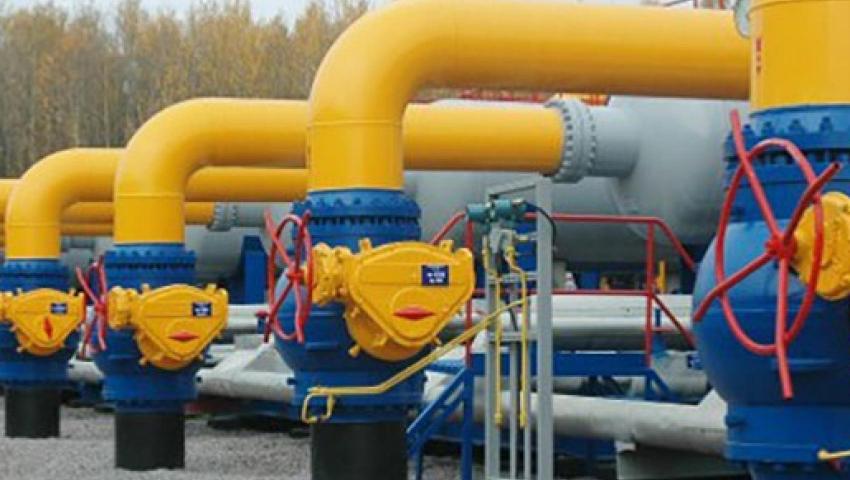EU countries agreed to consume 15% less gas this winter

Source: 3eNews, archive
European Union member states reached an agreement on Tuesday on how to cut their gas consumption by 15 percent and reduce their dependence on Russian supplies, as Europe prepares for a difficult winter of uncertain supplies from Russia.
"It was not mission impossible! Ministers reached a political agreement to reduce gas demand ahead of the coming winter," the Czech Republic, which holds the EU's rotating presidency, announced on Twitter.
In a bid to increase the security of the EU's energy supply, member states have reached a political agreement to voluntarily reduce natural gas demand by 15% this winter, the Council of the EU announced today.
The Council Regulation also provides for the possibility to trigger a "Union Alert" on security of supply, in which case reductions in gas consumption will become mandatory.
The purpose of the regulation is to make savings before winter to prepare member states for possible disruptions in gas supplies from Russia, which is constantly using energy supplies as a weapon.
"The EU is united and in solidarity. Today's decision made it clear that member states will oppose any attempt by Russia to divide the EU by using energy supplies as a weapon. Passing the gas cut proposal in record time has undoubtedly strengthened our common energy security. Saving gas now will improve preparedness. Winter will be much cheaper and easier for EU citizens and industry," said Josef Sikela, Minister of Industry and Trade of the Czech Republic, which holds the EU's rotating presidency.
Member States agreed to reduce gas demand between August 1, 2022 and 31 March 2023 by 15% compared to their average consumption over the last five years, with measures of their choice. This also means a comparable reduction in the consumption of blue fuel by each of the member countries, and hence also by the companies and households in them.
Given that all EU countries will make every effort to meet the reductions, the Council has indicated some exceptions and possibilities to request a derogation from the mandatory reduction target to reflect the specific situations of Member States and ensure that gas cuts are effective in increasing security of supply in the EU.
Derogations will be possible for countries without interconnectors with other EU countries
The Council agreed that Member States that are not interconnected with the gas networks of other Member States are exempted from mandatory gas reductions, as they would not be able to release significant amounts of gas from pipelines for the benefit of other Member States. Member States whose electricity grids are not synchronized with the European electricity system and are heavily dependent on gas for electricity generation are also exempted to avoid the risk of a crisis in electricity supply.
Member States can request a derogation to adapt their demand reduction obligations if they have limited interconnections with other Member States and can demonstrate that their export interconnection capacities or their domestic liquefied natural gas (LNG) infrastructure are used to divert gas to other Member States to the greatest extent.
Member States can also request a derogation if they have exceeded their targets for filling their gas storages, if they are highly dependent on gas as a feedstock for critical industries, or if their gas consumption has increased by at least 8% in the last year compared to the average of the last five years.
Member States agreed to strengthen the role of the Council in triggering the "Union Alert". The alert will be activated by a Council decision on a proposal from the Commission. The Commission presents a proposal to trigger the "Union Alert" in case of a significant risk of a serious shortage of gas or extremely high demand for gas, or if five or more Member States that have declared an alert at national level request the Commission to do so.
Reduced consumption should not affect households, health and defence
When choosing measures to reduce demand, Member States agreed that they should prioritize measures that do not affect protected customers such as households and essential services for the functioning of society such as critical entities, health and defence. Possible measures include reducing gas consumption in the electricity sector, measures to promote industrial fuel switching, national awareness campaigns, target obligations to reduce heating and cooling, and market measures such as tenders between companies.
Member States will update their national emergency plans, which set out the demand reduction measures they plan to take, and will regularly report to the Commission on the progress of their plans.
The Ordinance is an exceptional and extraordinary measure intended for a limited time. It will therefore apply for one year and the Commission will carry out a review by May 2023 to consider its extension in the light of the overall EU gas supply situation.
The text agreed today will be formally adopted through a written procedure. The written procedure will be launched and concluded in the following days after technical revisions of the text, BNR recalls.
